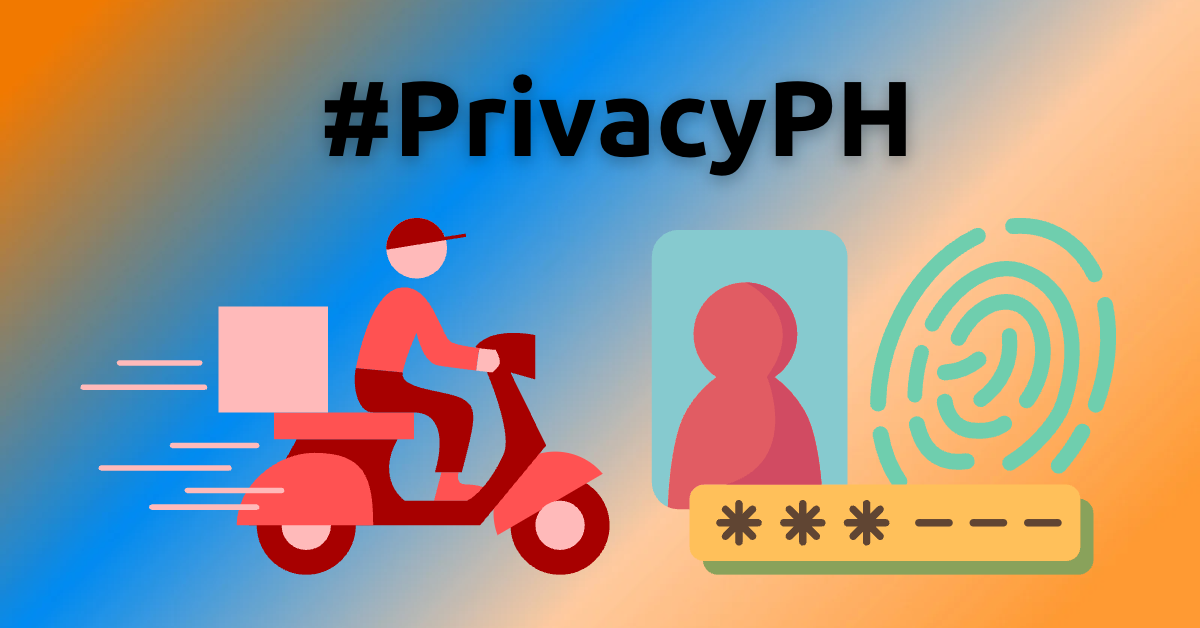I simply cannot imagine our lives now without delivery apps. These applications have had a significant impact on Filipinos’ lives by making it easier for people to access goods and services. Delivery apps made it convenient for us to order food, groceries, and other items online and have them delivered right to the doorsteps of our homes and workplaces. This is particularly useful for people living in urban areas, where traffic can make it difficult to go out and shop.
In addition, these apps have also provided new opportunities for small businesses to expand their reach and increase their sales. Overall, delivery apps have made it easier for people to live their lives and access the things they need, while also supporting local businesses.
However, delivery apps may collect and use personal information from users in order to facilitate the delivery process and provide the requested service. This can include information such as a user’s name, address, phone number, and payment information. While this information is necessary for the apps to function properly, it also poses privacy risks. As an app user paranoid about privacy, I am more concerned with some delivery riders taking photos of me without consent to serve as proof of delivery.
During the Christmas holidays, we ordered some snacks to be delivered to our home using one of the popular delivery apps in the country. The ordering process went without any hitch, but after the food items were handed over to me by the delivery rider, he quickly snapped my photo (without any permission)! I calmly asked him what was that for and he replied that they are required by their “team leader” to take photos of the recipients as proof that the items had been delivered (he even showed me a group chat message asking them, the riders, to not forget taking the photo proof). I told him that from what I know, it (my photo showing my face) is not a requirement by their company and if he needs proof, he can take photos of the delivered items in front of our house number instead. For privacy and security purposes, I requested he deletes my photo from his mobile phone since he failed to ask prior permission, otherwise, I will file a complaint with his company.
Moving forward, I asked two of the top delivery apps in the Philippines today what their company policy says about taking photos of their users (recipients) to serve as proof of delivery.
According to foodpanda Philippines:
At foodpanda, we have a policy in place to ensure that orders are successfully delivered to customers by requiring our delivery partners to submit a proof of delivery which contains a photo of the complete order with the recipient at the drop-off location. The protocol is our way to ensure the traceability of any order should any issues or disputes arise, prevent fraud, and provide assurance that the item was indeed successfully delivered. It is also aligned with our goal to provide a seamless delivery experience to our app users. We put great importance on the privacy and security of our customers so we are continuously educating our Ka-panda to secure permission or inform the recipient before taking their photo. These photos are not used for any other purpose other than as proof of delivery, and access to these photos is limited within foodpanda. Our commitment to protect the privacy rights of our customers remains a top priority for us so we can promote the interest and safety of all our stakeholders.
On the other hand, Grab Philippines said:
Grab is fully committed to ensuring the safety and well-being of our consumers and partners on the platform -- making us the most preferred delivery platform in the country. In line with our policies, Grab does not require its delivery partners to take a photo of the face of its consumers upon delivery of their items. To ensure that the items are properly delivered to its intended consumer, our delivery partners are advised to take photos of the item once its delivered. Grab will continue to further enhance its policies to ensure utmost safety and security for both our consumers and partners.
Under the existing Data Privacy Act of the Philippines (Republic Act 101 73), we, as data subjects, have the right to be informed. We should always treat our personal data (our photos, included) the same way as our own personal property. Personal data should never be collected, processed, and stored by any organization without our explicit consent unless otherwise provided by law (say, if it is a matter of life and death).
The National Privacy Commission (NPC) website says:
Whenever anyone is making an audio or video recording of you, or even just taking your pictures, you have a right to know, and you must always be given the chance to opt out when you don’t feel comfortable.
Privacy is a fundamental human right that enables individuals to live their lives with dignity, autonomy, and security. By taking care of our privacy, we can protect ourselves and our rights in the digital age. If our personal information falls into the wrong hands, it could be used for a variety of malicious activities. Always be safe online and offline.


